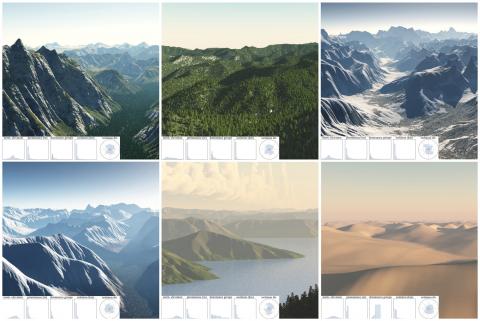Speaker: Dr. Oscar Argudo (ViRVIG group of the Universitat Politècnica de Catalunya, Spain)
Virtual landscapes in media and games nowadays display large impressive terrains with richness of details. Therefore, the current challenge is not only to produce visually appealing scenes, but also to ensure they conform to some objective criteria for realism. For example, we could simulate the physical processes underlying natural phenomena, procedurally mimic distributions of measured properties, or learn from real data. In this talk, I will present a few works that followed these ideas to create a variety of landscapes: from deserts to glaciers, from alpine rocky peaks to gentle forested hills, and different degradation effects on natural scenes. Apart from the knowledge borrowed from Earth Sciences and other disciplines outside Computer Science, we will see the inspiration and key ideas in many of these works came from actual hikes!
Short Bio:
I am currently a Maria Zambrano research fellow at the ViRVIG group of the Universitat Politècnica de Catalunya. I obtained my PhD in Computing from UPC in 2018, under the supervision of Carlos Andújar and Antonio Chica. My thesis focused on the creation of realistic natural scenarios, leveraging machine learning techniques and real data to improve procedural and example-based modeling algorithms. After that, I was hired as a postdoctoral researcher by the CNRS in the LIRIS laboratory in Lyon, working on procedural modeling of mountainous landscapes and the simulation of natural phenomena such as dunes, glaciers and ecosystems. My current research project deals with the generation of hiking paths networks and the modeling of degradation effects caused by outdoor activities. I have published in journals such as ACM Transactions on Graphics and Computer Graphics Forum, and presented in top conferences like SIGGRAPH Asia and Eurographics.
